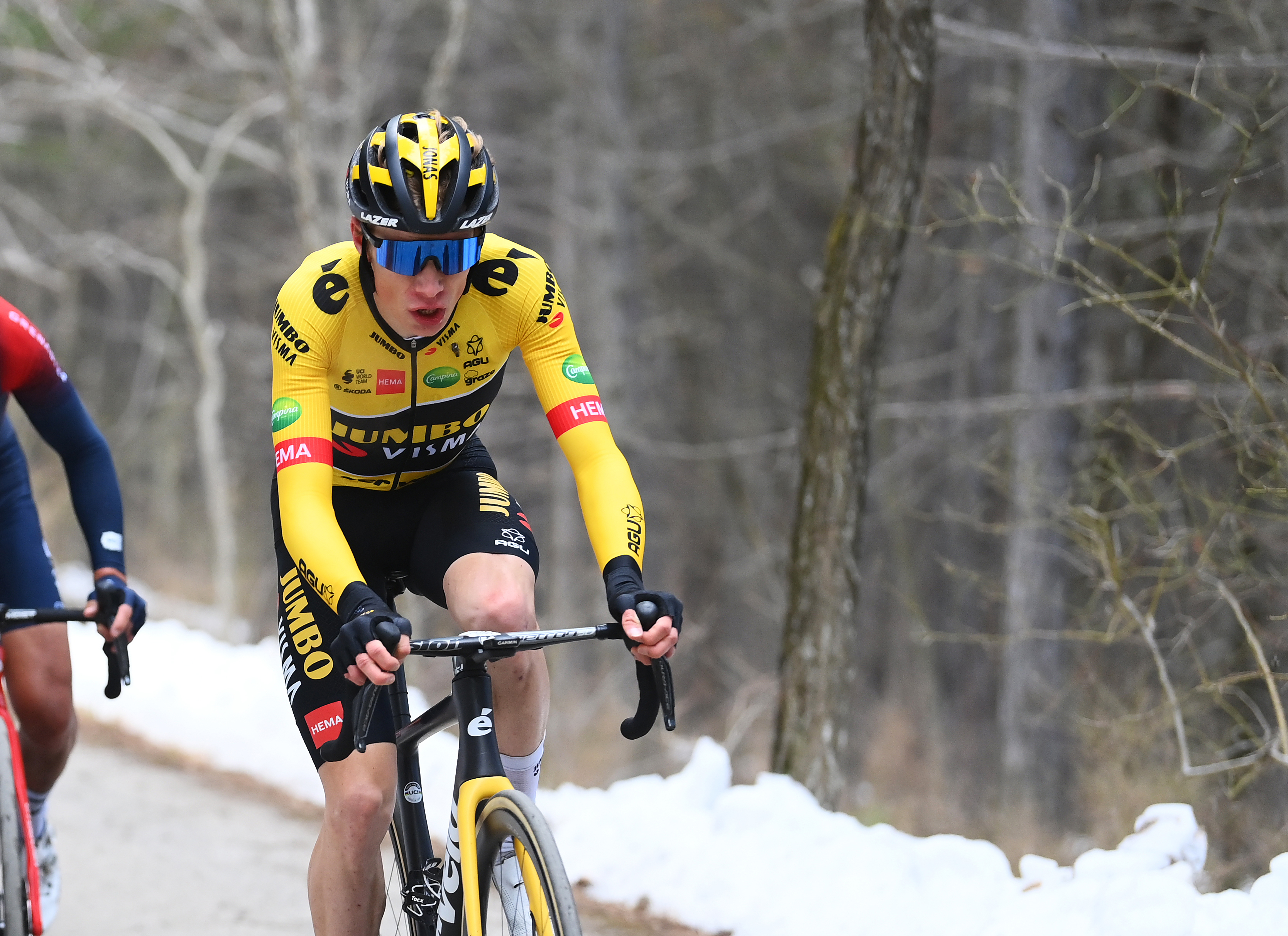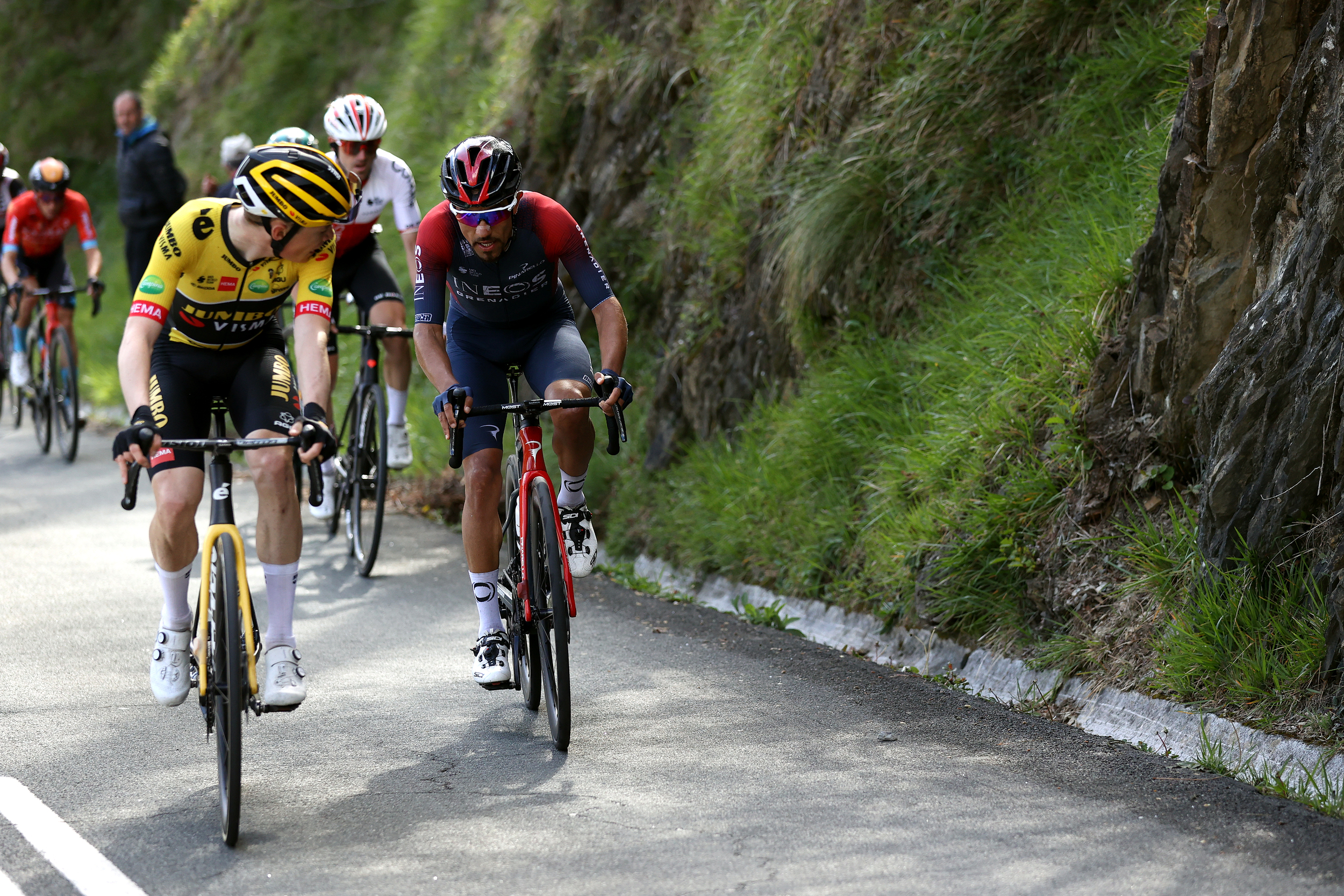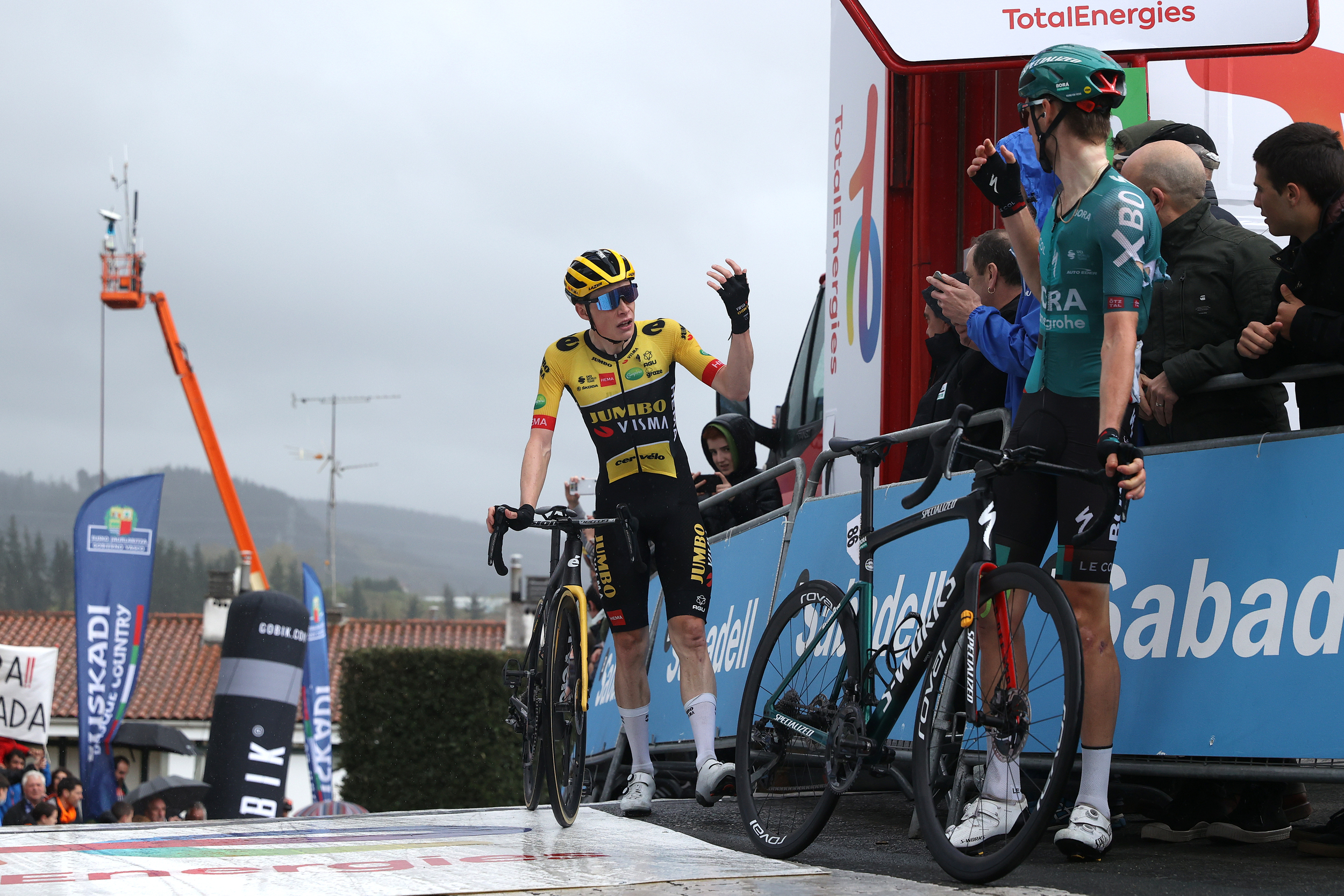The apprentice becomes the master? Jonas Vingegaard on Jumbo-Visma managing his and Primož Roglič's own ambitions
The Danish rider will go into the Tour de France as co-leader alongside Primož Roglič


It was almost a year to the day when Jonas Vingegaard finished second on GC at the Tour of the Basque Country to teammate Primož Roglič, and even most ardent cycling observers were querying: Jonas who?
It was a little unfair, for the Dane had done what every climber keeps trying but failing to do and beaten Tadej Pogačar on a summit finish at the UAE Tour six weeks earlier, and before he came to northern Spain he scooped up two stage wins and the overall at the Coppi e Bartali. But, still, the Jumbo-Visma man was a relative new name for cycling fans to become acquainted to.
Come July, the sport definitely knew about Jonas the former fish factory worker, the quiet and reserved new darling of Danish cycling finishing second at the Tour de France. A year on, it's been 12 months of an elevating profile, and of adapting to the reality of his place at the top seat of general classification riders.
Was it expected? "When I turned pro, no, I didn't expect this," he tells Cycling Weekly ahead of stage five of this year's Basque race. "But of course now with how it's been going in the last few years, you get that hope for it.
"But for sure I never expected this when I turned pro to be in this situation so quick. Not at all. Even, I wouldn't think about it ever [happening]."
Yet, it has, and Jumbo-Visma have a dilemma on their hands that they have to ensure doesn't develop into a problem: how to keep Vingegaard happy and content in pursuit of his own personal goals, without preventing their star man Roglič - seven years his colleague's senior - from winning.
One of the team's sports directors, Marc Reef, recently alluded to that, telling this publication that "we speak a lot about this [Vingegaard's ambitions], not only with Jonas but also with Primož. We are not working with a sole leader in our team, so Jonas will have his chances next to Primož, and when he’s better he will get his chance to maybe win the race."
Vingegaard says the onus is on the sports directors, such as Reef. "It's more about how the team manages it," he says. "They say to us that we are equal leaders. Of course I have ambitions also, of course, but also if in the end tomorrow Primož can win the race, I'm not afraid to help him. Primož is a really good guy, one of my good friends."
Get The Leadout Newsletter
The latest race content, interviews, features, reviews and expert buying guides, direct to your inbox!

He's had that belief reinforced in the past week in this cycling heartland tucked up against the south-west corner of France and the Bay of Biscay. "I don't think we have had any really big answers yet," he says about lessons learned during the race. "But I think I have learned that Primož and I work really well together. We support each other well, and that's been a good thing from the week."
Indeed, with Roglic in yellow, Vingegaard marked multiple attacks in the final 20kms of stage three, and neither struggled to ride with the best on any climb; it was only the gains that Roglič made on the opening day time trial that separated them - until stage five when the apprentice overtook the master: Roglič missed a crucial split, and because Vingegaard was present in the select group of seven led by race leader-to-be Remco Evenepoel, Roglič couldn't force a chase. He lost a minute and the leader's jersey.
Vingegaard was as confused as any. "It's hard to explain what happened," he says the following morning. "Both of us were on the limit and then I don't really know [what happened]." The Slovenian, for his part, later revealed he is suffering with a "painful" keen injury.
What was clear was that Vingegaard made the split, and his co-leader - the team's de-facto leader, in reality - did not. It wasn't quite the handing over of the baton, or the changing of the guard - such talk would be so premature that the thought shouldn't even be conceived - but it was very clearly an indication of Vingegaard's worth among the sport's elites, and vindication of what Roglič himself had said a few days earlier: "He doesn't need to prove how strong of a rider he is - we all know it. He could win this race - we are the same."
Come the final, neither did, both failing to defend their spectacular 1-2 from the previous edition. But it wasn't for the want of trying: Roglič set a ferocious pace 40km from the line on the sixth and final stage, a reversal of roles with a significance that can not be underestimated. Vingegaard then went on the attack himself, yet again trying to jump clear multiple times.
This was a different Jonas: when we were becoming accustomed to him a year ago, he wasn't this type of aggressive, punchy rider - he was one whose endurance took him past the rest. Not here, though. "I didn't hide and tried several times to attack on the climbs," he says after stage six. "I refused to give up the fight early.”
He was perpetually, it seemed, trying to light the fuse, even colliding with both Aleksandr Vlasov and Ion Izagirre on the final two stages, causing both to crash and fall. Vingegaard won't have been the peloton's best friend, and all of a sudden he was a meme.
A man so wrapped up in his own performances and so disinterested with the outside world - or so it looks that way - most probably won't look at the fun being poked at him on social media - he'll focus on his own thoughts, listen to his team's analysis. At the race's conclusion, he was certainly content with the the drama he had help create. "My way of riding makes me happy," he assesses. "The shape is there - that gives me hope."

Avoiding pitfalls in the Tour's first week
Finishing second on his debut Tour took Vingegaard by surprise, but if he was the unknown package last time around, he's going to be one of the faces of this year's edition which starts in his home country.
An opening day time trial in Copenhagen will immediately set an order in the GC race, and racing against the clock is something that Vingegaard says he needs to improve on, but he's far from weak at the discipline: he was ninth in this race's TT, and third at both of last year's Tour tests. Of his last 10, he's finished in the top-10 on seven occasions.
He jokes "everything, basically everything!" when asked to pinpoint areas to strengthen, before honing in on one area. "I think what I am really trying to improve on is that I am having quite a few small injuries," he reveals without going into specifics. "I have to try and get rid of these small injuries. It's a lot of setbacks. Well, not a lot, but some small ones which makes it a bit harder to have a really consistent level."
Then comes stage two that includes a final 10km compromising of a seven kilometre crossing along the Great Belt Bridge, where if the wind blows in the wrong direction, the peloton could very easily be torn apart.
"That's a big bridge!" Vingegaard laughs. "It all depends on the wind. The bridges goes to the west, and normally the wind comes from the west, but if it comes from the north or the south, it will be dangerous for the GC. So, for sure, that's going to be a really key moment. If if there is a headwind there could be panic and it will be chaos."
A few stages after, when the race is back in France, the peloton will have to negotiate a selection of the brutal Paris-Roubaix cobbles. In mid-March, both Vingegaard and Roglič rode the GP de Denain race in France that featured multiple cobbles. It was a day out full of lessons.
"It was my first cobbled race and it was special - I'd never tried it before," Vingegaard says. "I took from it that obviously you cannot have a bad position going into the cobbles, but also you need luck. If you're unlucky and you have a puncture in the wrong moment, well you can lose the race there."
It's clear that Vingegaard is prepared to play helper, but now he's settled into his new status as a key player who can also get the better of Roglič, he wants to capitalise on that. "I'm looking forward to it," he signs of, dreaming about going one step further at the Tour.

Thank you for reading 20 articles this month* Join now for unlimited access
Enjoy your first month for just £1 / $1 / €1
*Read 5 free articles per month without a subscription

Join now for unlimited access
Try first month for just £1 / $1 / €1
A freelance sports journalist and podcaster, you'll mostly find Chris's byline attached to news scoops, profile interviews and long reads across a variety of different publications. He has been writing regularly for Cycling Weekly since 2013. In 2024 he released a seven-part podcast documentary, Ghost in the Machine, about motor doping in cycling.
Previously a ski, hiking and cycling guide in the Canadian Rockies and Spanish Pyrenees, he almost certainly holds the record for the most number of interviews conducted from snowy mountains. He lives in Valencia, Spain.
-
 FDJ-Suez, SD Worx-Protime, Lidl-Trek confirmed for Tour of Britain Women as strong list of teams announced
FDJ-Suez, SD Worx-Protime, Lidl-Trek confirmed for Tour of Britain Women as strong list of teams announced18 teams set to take part in four-day WorldTour stage race
By Tom Thewlis
-
 Cyclists could face life sentences for killing pedestrians if new law passed in England and Wales
Cyclists could face life sentences for killing pedestrians if new law passed in England and WalesReckless cycling currently carries a maximum two-year jail term
By Tom Thewlis